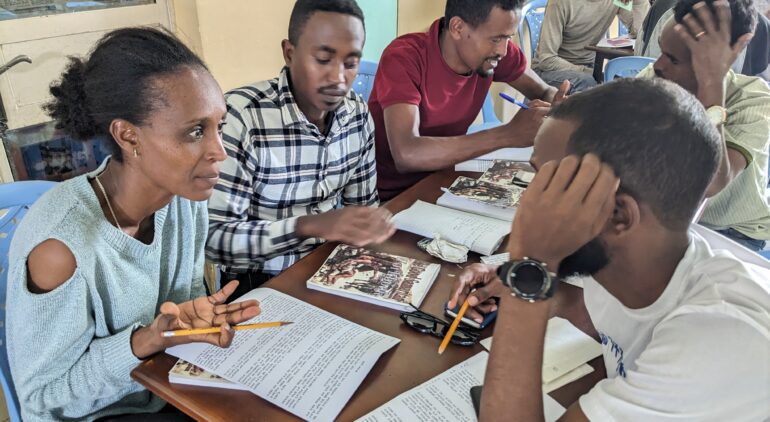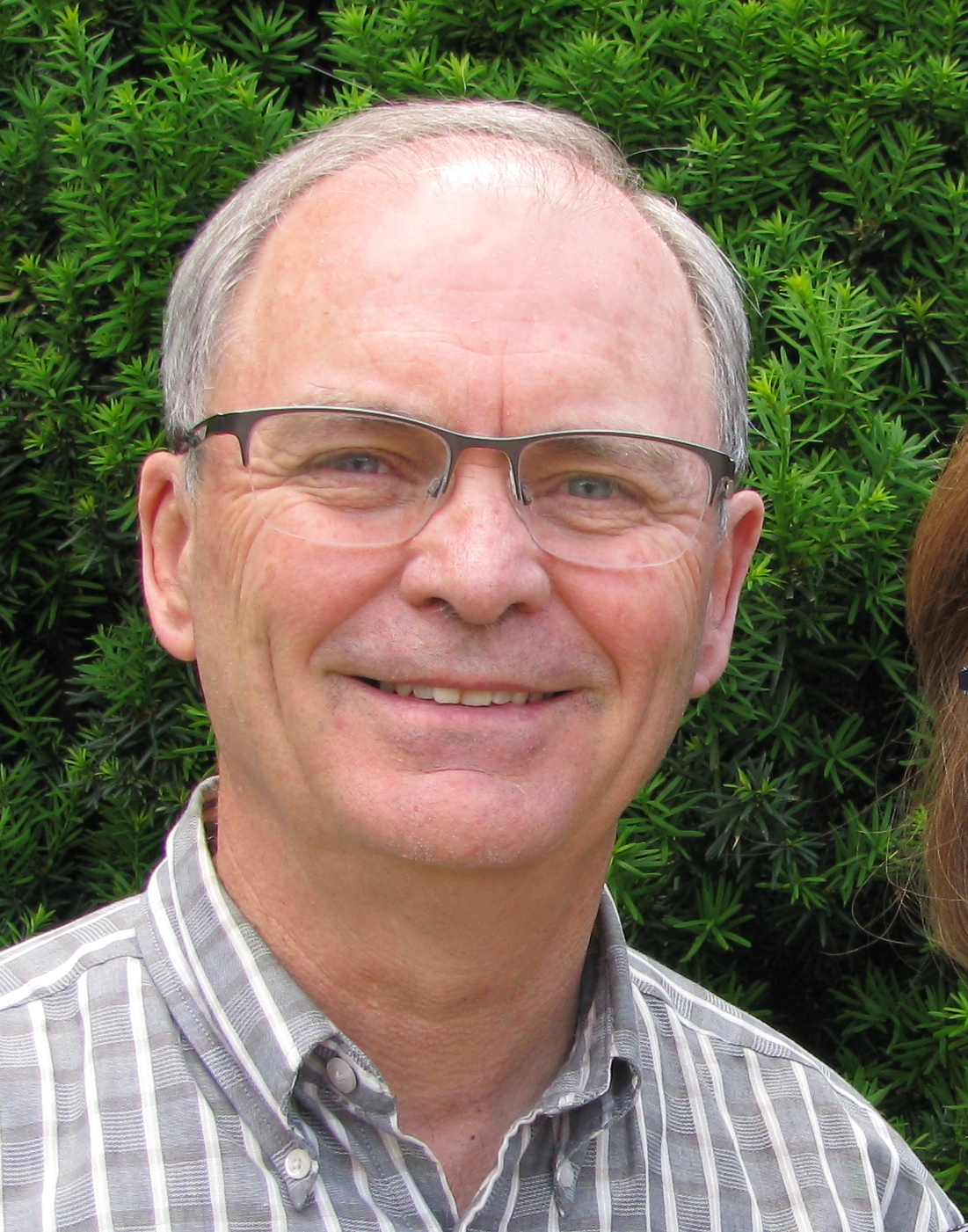$13,400 Donation Goal
The Shalom Movement Project develops a new generation of servant-hearted leaders who have been equipped to bring holistic peace and wellbeing to their churches and communities in Tigray Region. The Shire Kale Hiwot Bible College in Shire, Ethiopia is developing ambassadors of God's shalom. The project invests in both the training expenses as well as in practical uplifting projects that the students implement in their communities.
Project Background
After two years of devastating conflict, faithful followers of Jesus are working hard to bring God’s shalom – wholistic peace and wellbeing – to the region of Tigray. This project seeks to partner with them in four ways:
• first, by collaborating with others to create a movement to bring shalom to Tigray Region and its neighbours
• second, by equipping local people through a ministry training college to be agents of shalom
• third, by resourcing these shalom agents to use their training to serve their communities
• and fourth, by bringing peace and reconciliation initiatives to the neighbouring areas of Amhara and Afar.
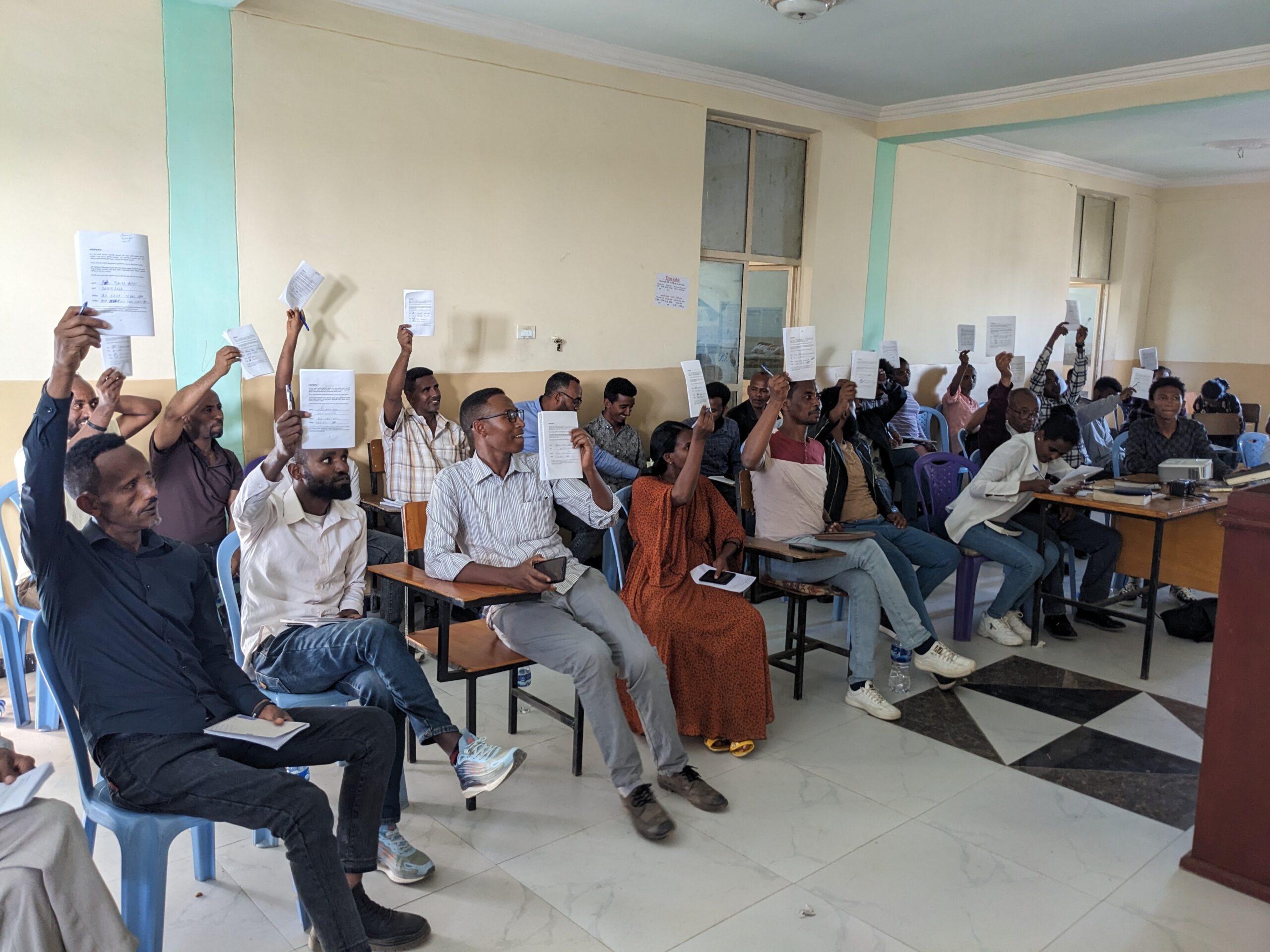
Project Activities
1. Collaboration – The network of those who are drawn to the vision of working together in mutually supportive relationships, though not necessarily under the same umbrella, is growing. The Shalom Movement is a hub that attracts partners to serve the people of northern Ethiopia in post-war recovery. Investing in communication and building the support base is an on-going and growing area of priority.
2. Shire Bible College – Developing a new generation of leaders whose values are shaped by the values of Jesus and whose skills are developed in ways that are most needed in the context is the major project activity. Currently, one cohort of English language students and one cohort of Tigrinya language students come to Shire city for in-person learning for two weeks in alternating months. Three courses are offered, usually with the help of two visiting instructors. The 50 students have just started their second year of a two-year diploma program. They fulfill 6-week practicums in-between modules supervised by their individually chosen church mentors. A second round of training for church mentors is scheduled for January 2026. A new intake of students is scheduled for January 2026 immediately following the graduation of the first batch.
3. Practicums and Humanitarian Aid – The scope of humanitarian need is unlimited. As funding is available, The Shalom Movement will intervene to serve those most in need as defined by the government bodies that we will collaborate with. The on-going community presence is the Shire EKHC church and other church bodies either in Shire or other communities of Tigray. Teaching English as a Foreign Language (TEFL) to Children is one of the practical courses taught in the college. The implementation of TEFL requires that children have workbooks – which is not possible in the current economic climate in Tigray where recovery from the conflict and survival are still the norm. This project allows the Shalom Movement to provide TEFL workbooks for the children of Tigray as one example of practicums and humanitarian aid.
4. Peace and Reconciliation – When the timing is right, Peace and Reconciliation events will be initiated with neighboring Amhara and Afar peoples. Groundwork is being laid for this by the training and practicums through the college and ministry partners for the training have been identified.
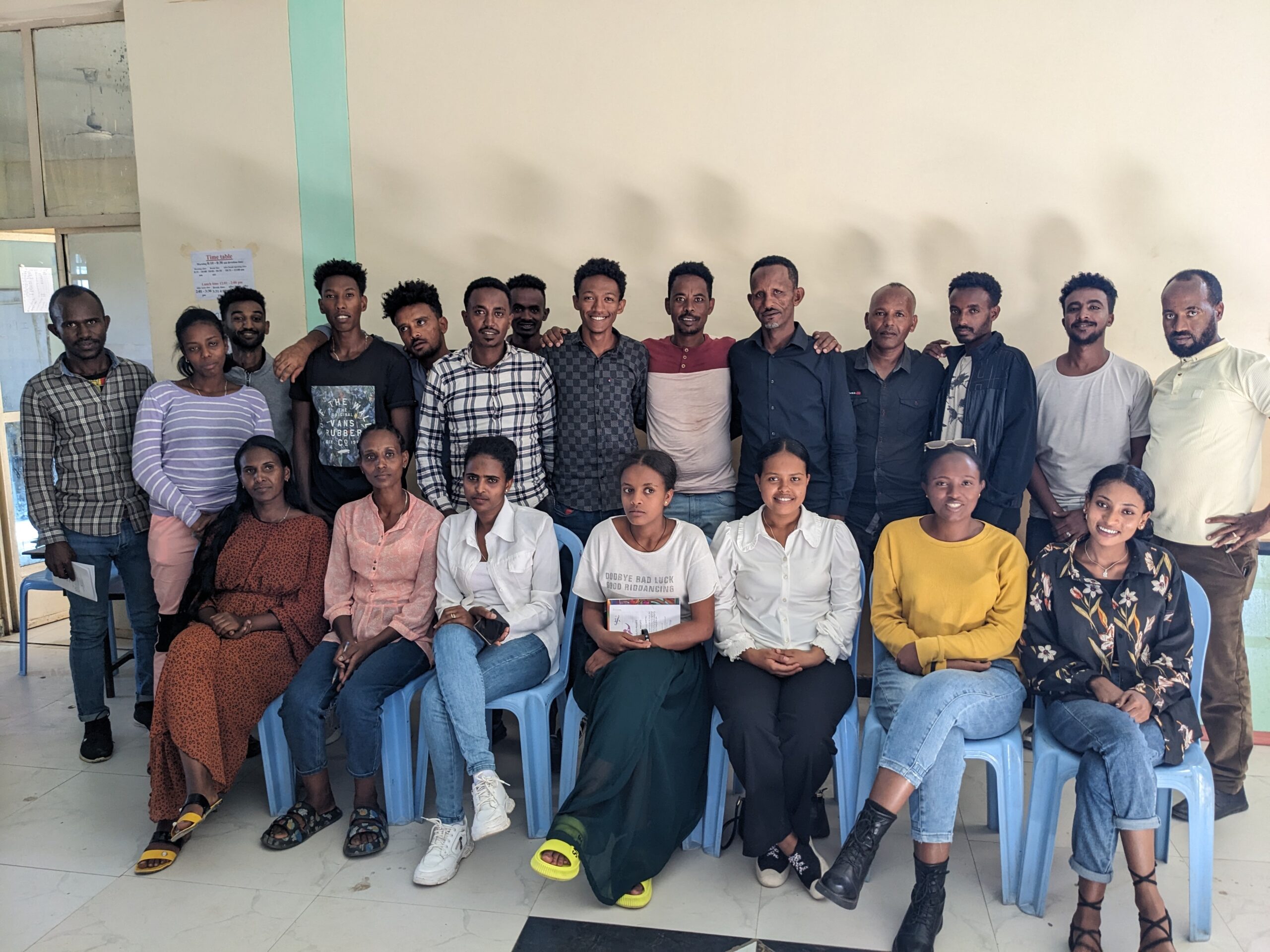
Implementing Partner
The project activities are under the Shire Kale Hiwot Church in Shire, Tigray Region. The Bible college is also under this local church, but it serves all denominations. The project manager is Agazi Fetuwi who is also the director of the Bible college and the chairperson for the Ethiopian Kale Hiwot Churches in Tigray Region. In practice, all the evangelical churches in the region are working together in The Shalom Movement.
Assessment of Need
Tigray Region in Ethiopia is recovering from two years of devastating conflict. There are still 1.8 million Internally Displaced Persons (IDPs) in the region. In the city of Shire alone, in 2024 there were IDP camps with 500,000 people. Many are still in IDP Camps. These displaced people are suffering physically from shortage of food, water, sanitation, and accommodation. They are suffering psychosocially from trauma of war and loss and from lack of employment and purpose. What the region needs more than anything else is leaders with the integrity and moral character that puts loving and serving neighbors at the core of their way of life. Jesus exemplified this way of life. He said that he did not come to be served but to serve and to give his life for others. He modeled that by washing his disciples’ feet. This project aims to develop the kind of leader-servants who will have hearts that want to love and serve their neighbors, the knowledge of how to holistically meet their needs, and the skills to be contextually practical in uplifting and transforming their society. In short, this project aims to raise up Ambassadors of Shalom for Tigray Region.
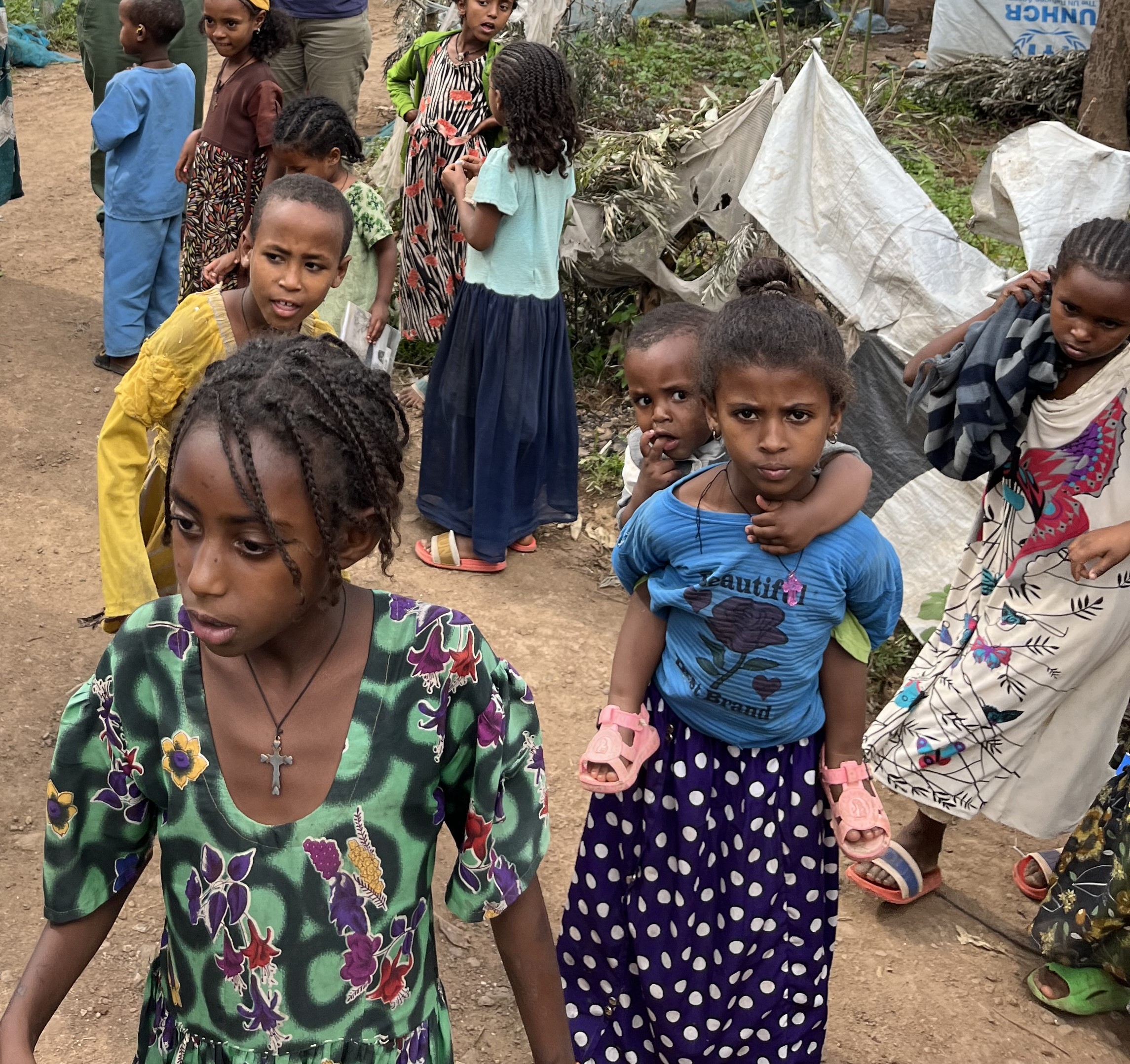
Budget
1. Shalom College
a. 4 remaining modules for current students @ $2000 (CAD) 8,000
b. 20 modules for 2026-2027 batch of students @ $2000 40,000
2. Humanitarian Aid and Practicums 50,000
3. Peace and Reconciliation until December 2027 20,000
4. Advancement, Supervision, and Administration of the Movement 18,000
5. DevXchange Admin Fee (10%) 13,600
TOTAL (CAD) 149,600
Accomplishments So Far
The Bible College in Shire was closed during the war but was re-opened in September 2023. Fifty students are enrolled in a two-year program that has been designed around a competency-based educational philosophy. Students come for a 15-day module consisting of three courses every other month. They are implementing what they are learning through practicums for each of their contextually relevant courses. Each student is being encouraged and supervised by mentors from their churches. They are being invested in holistically so that they will be competent leaders for a future society that is increasingly founded on God’s shalom. A new intake of students from across the Tigray Region is anticipated in January 2026.
Along with re-opening the Bible college in September 2023, the Shalom Ethiopia Movement was launched with representatives from six international agencies and six local churches and ministries. As a result, the college and local churches have other partners who are also participating in this vision. A wide variety of initiatives have been undertaken during the last 20 months – food distributions in several cities, medical and dental teams providing care for hundreds, trauma counseling and psychosocial support, training local general practitioner doctors in areas of professional development, distributing food for victims of Gender-Based Violence, feeding program for orphans, clothes distribution, and more. In addition to their humanitarian work, these partners are teaching students skills in trauma counseling, teaching English to children, sports and health, peace and reconciliation, as well as biblical and other ministry studies courses.
-
Tim Jacobson
The Project Lead for Shalom Alamata is Dr. Tim Jacobson. Tim was born to missionary parents and raised in Ethiopia. As a fresh college graduate, he returned to Ethiopia to work with an SIM team doing famine relief and development work in northern Ethiopia. He briefly worked in Alamata at that time. After seminary, Tim returned with his young family to work in Ethiopia with SIM in development and theological education. Returning to Canada, he continued to serve with SIM in missionary preparation and most recently as the SIM International Theological Education Ministry Point Person. He currently serves as the Associate Director for MentorLink Canada. Tim was inspired to do something to help the people of Alamata through connecting with a young theology graduate, Mikiyas Moges, who is from Alamata and was displaced by the war along with many youth whom he had been serving in the church in Alamata.


